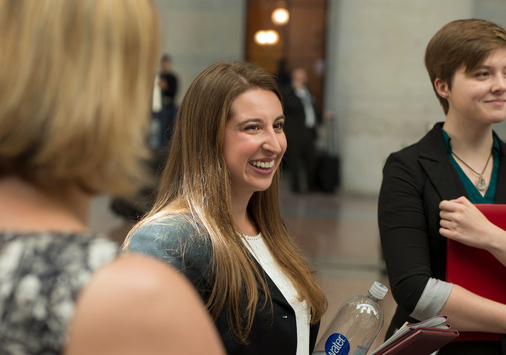
“We need to show students that they don’t have to choose between pre-professional training that gives them “day one” skills and a broad-based education that helps them learn to think, adapt and create,” says Professor Karen Spierling in an op-ed recently published in Chief Executive. “The best choice is to have both. And liberal arts programs can offer both, but we need to think differently about how to help them integrate those two pieces.”
Spierling goes on to say:
Traditional academic disciplines are full of the skills and knowledge that will help students to understand the complex factors that shape how markets operate, how business practices vary globally, how local businesses and global corporations function. Studying subjects such as history, philosophy, foreign languages, economics and anthropology allows students to grasp the global dynamics of business in deeper and more useful ways than a standard business curriculum.
With a liberal arts approach, students can understand not only how but why markets and business practices work differently in China or Brazil than they do in the United States. They can move beyond identifying the path of a supply chain to analyzing how local circumstances and expectations will affect the security and resiliency of that supply chain.
Across all kinds of subjects, the liberal arts train students to frame questions quickly, to make connections that others don’t recognize, to spot emerging opportunities, to manage diverse teams, to learn new skills, and to have the ethical capacity to be good managers and leaders who can contribute to the vital shift from shareholder to stakeholder capitalism.
In other words, the best preparation to enter today’s global business environment starts with a strong grounding in the humanities and social sciences. To make our students’ education complete, this foundation of broad and deep thinking needs to be integrated with applied business skills that can be easily changed and adapted depending on the needs of the current job market.














